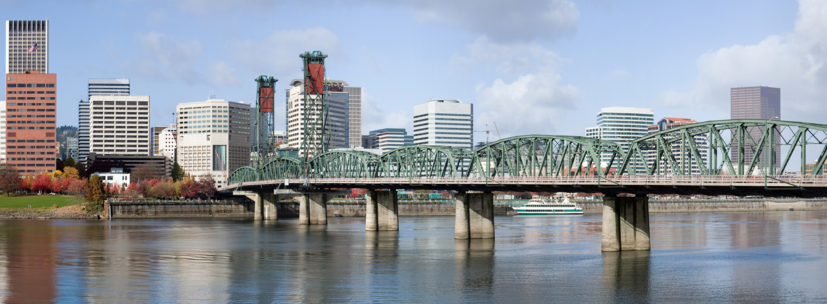
Police in Portland are being advised to stop pursuing low-level traffic infractions such as broken headlights and expired plates unless they are related to immediate safety threats as the city sees its force and budget drop while crime rises in the aftermath of rioting in the city and the movement to defund the police.
The move by the city’s super-liberal mayor Ted Wheeler is part of a shift toward immediate threats as well as a response to data indicating that traffic stops and vehicle searches disproportionately affect black drivers.
Wheeler said the goal is "to make our city both safer and more equitable, helping reduce the number of Black, indigenous and people of color who are disproportionately impacted by consent searches and traffic stops."
According to data from the police bureau for 2019, 18 percent of the city’s traffic stops were for black drivers, but they make up just 5.8 percent of the population. For non-moving violations, they accounted for 22.6 percent of all stops.
While officers are being told to essentially ignore issues such as expired license plates and broken headlights, drivers will still be stopped for speeding or reckless driving.
In a video conference with Portland Police Bureau Chief Chuck Lovell, it was announced that officers will also now be required by a new consent search procedure to “clearly inform the person of their right to refuse or revoke their consent” and record their request when they are asking the individual to consent to a search using an audio recording application on their cell phones.
The mayor said part of the reason that officers can’t address non-moving violations is because they are short-staffed – something his own actions following the death of George Floyd played a big role in. Wheeler described their staffing on the streets as being “inadequate.” So far, at least 130 officers have left the department since July 1, 2020. Seventy-five of those resigned and 55 stepped down, many of them citing issues such as burnout from the ongoing rioting and low morale. Many officers were targeted by Black Lives Matter activists and antifa members with rocks, glass bottles and fireworks during rioting in the city that the mayor did little to curb.
Although the bureau can employ up to 916 sworn members, they currently have just 812 on staff. Their 50-person Rapid Response Team resigned from the unit last week after the criminal indictment of a team member for using force during a protest. The AP reports that the city is 150 officers short of “authorized strength,” standing at their lowest staffing level in decades.
Police budget cuts mean the city cannot be properly protected
On top of that, the city’s council cut $27 million from the police’s budget last year, with $11 million of the cut being attributed to pandemic-related budget concerns and $15 million related to calls to defund the police. Since then, Portland has seen its deadliest year in more than a quarter century, with 42 homicides registered so far this year. They could very well be on track to surpass their all-time homicide record of 70, which was set in 1987 as the city dealt with a gang siege.
A reduction in traffic stops is a questionable move for a city that has already seen the number of people who have died in traffic accidents this year reach more than double the figure for all of last year – despite only being halfway through the year. But what do we expect from a city that passed a resolution barring its officers from working with federal law enforcement to prevent rioters from destroying the city and a mayor who marched in solidarity with rioters?
Sources for this article include:
Please contact us for more information.















